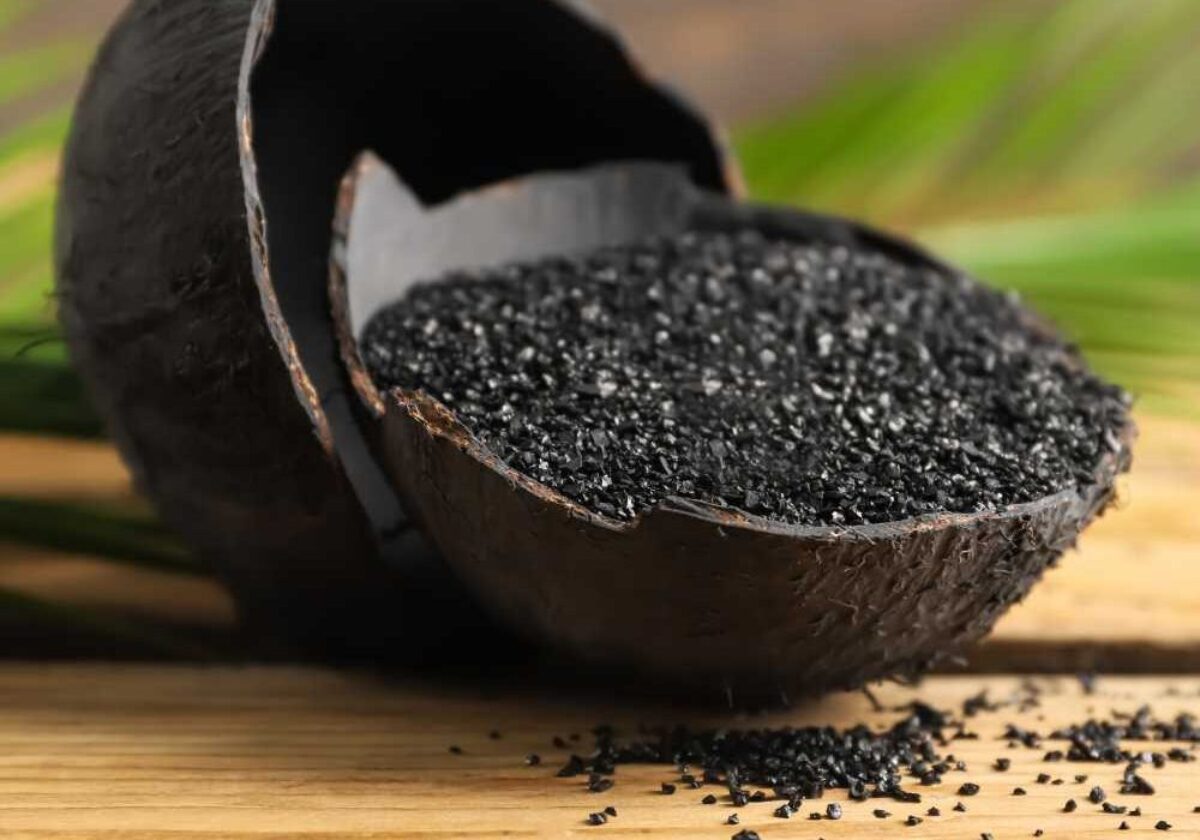Introduction to Coconut Shell‑Based Activated Carbon
Activated carbon derived from coconut shell stands out for its exceptional microporosity, mechanical strength, and high retention capacity. Formed through a steam activation process at high temperatures (850–900 °C), it produces carbon with an expansive internal surface area—ideal for adsorbing a wide array of contaminants
🔹 Water Treatment (Granular & Powdered Carbon)
-
Granular Activated Carbon (GAC) and Powdered Activated Carbon (PAC) are optimized for removing chlorine, organic solvents, taste, odor, and harmful byproducts like THMs in both potable and industrial wastewater treatment indcarb.com+1IndoCarb+1.
-
Ideal for POU/POE filters, these carbons are NSF- and Prop 65‑compliant, and include specialized variants such as silver‑impregnated and catalytic carbons to target chloramines, iron, and hydrogen sulfide indcarb.com.
🔹 Gold Recovery (GC Grade)
-
Carbon engineered for gold extraction features ultra‑low dust, minimal platelets, excellent hardness, and fast adsorption kinetics.
-
These characteristics translate into superior gold loading capacities, minimal dust loss, and smooth high‑throughput operation indcarb.com+1LinkedIn+1.
🔹 Air & Gas Filtration
-
Designed for applications such as gas masks, cabin air filters, industrial odor control, and emission mitigation.
-
These activated carbons are known for high retentivity and ability to capture a range of gases including acid vapors, organic compounds, ammonia, formaldehyde, and mercury vapor indcarb.com.
🔹 Cigarette Filters (CF Grade)
-
Specifically tailored to reduce volatile toxicants like acetaldehyde, acrolein, hydrocarbons, pyridine, and more, improving smoke taste and reducing irritants.
-
Low dust and bespoke particle size ensure clean filter incorporation and consistent performance CARE Ratings.
🔹 Oil & Gas Sector
-
Carbide products for solvent recovery and hydrogen sulfide removal, crucial in refineries and petrochemical industries.
-
These grades feature minimally leachable silica, nil ash, and high structural hardness to protect sensitive equipment and reduce maintenance costs indcarb.com.
🔹 Food & Beverage Applications
-
Food-grade activated carbon is tailored for deodorization, decolorization, and removal of disinfectant residues in edible oils, beverages, sugar syrups, and juices.
-
Certified to Food Chemical Codex standards, these carbons offer very low ash and dust, and optimized adsorption performance for iodine, methylene blue, and molasses number values



